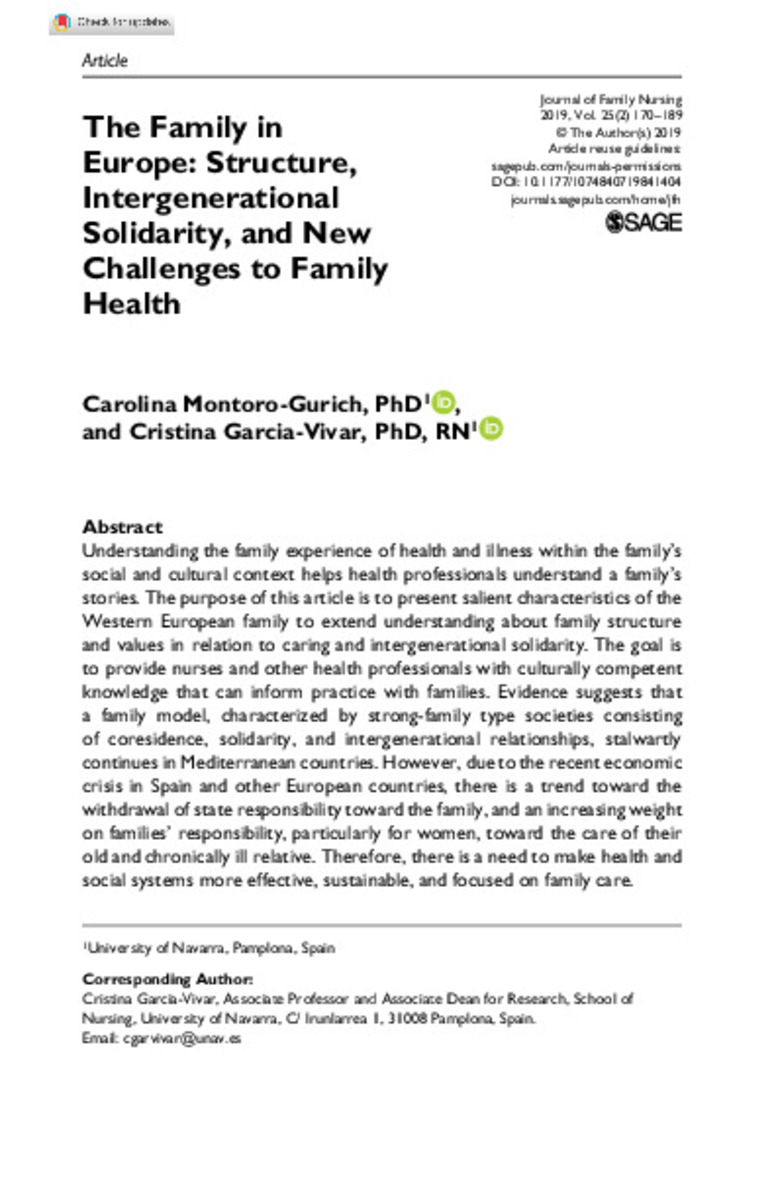The Family in Europe: Structure, Intergenerational Solidarity, and New Challenges to Family Health
Palabras clave :
Materias Investigacion::Geografía
Family
Intergenerational relations
Family structure
Family health
Europe
Fecha de publicación :
2019
Cita:
Montoro-Gurich, C. (Carolina); Garcia-Vivar, C. (Cristina). "The Family in Europe: Structure, Intergenerational Solidarity, and New Challenges to Family Health". Journal of Family Nursing. 25 (2), 2019, 170 - 189
Aparece en las colecciones:
Estadísticas e impacto
0 citas en

0 citas en

Los ítems de Dadun están protegidos por copyright, con todos los derechos reservados, a menos que se indique lo contrario.











